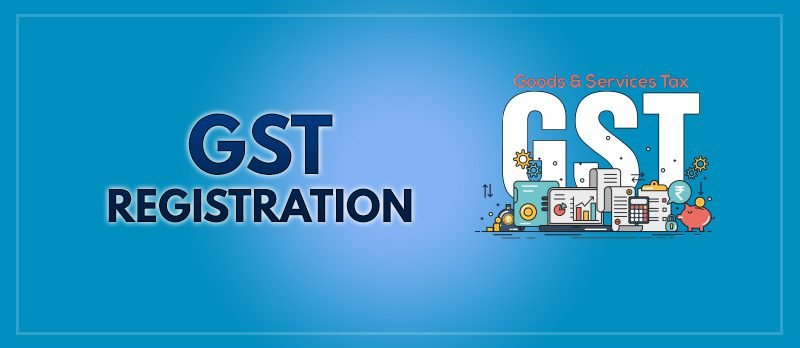GST Registration Consultant in Hyderabad – Fast, Compliant & Hassle-Free Services

Are you looking for a professional GST Registration Consultant in Hyderabad to help you register your business under Goods and Services Tax (GST)? Whether you’re a trader, service provider, manufacturer, or online seller, GST registration is a mandatory compliance for businesses with a turnover above the threshold limit.
At Invention Tax Solutions, we provide fast, affordable, and fully compliant GST registration services in Hyderabad, handled by experienced consultants, agents, and legal advisors. From document preparation to ARN generation and GST number activation, we ensure a smooth and error-free process.
✅ Why You Need a GST Registration Consultant
Filing for GST involves:
Understanding eligibility and turnover thresholds
Preparing and uploading correct documents
Choosing between Regular and Composition schemes
Responding to officer notices, if any
A qualified GST consultant ensures:
Accurate filing and fast GSTIN approval
Error-free documentation
Guidance on input tax credit and GST rules
Avoidance of penalties for non-compliance
✅ Who Needs GST Registration?
Businesses with turnover above ₹40 lakh (₹20 lakh for services)
E-commerce sellers (Amazon, Flipkart, etc.)
Inter-state suppliers
Freelancers and professionals
Exporters and importers
Online service providers and consultants
✅ Our GST Registration Services in Hyderabad
We offer end-to-end services for:
✅ Types of GST Registrations:
Regular GST Registration
Composition Scheme for small businesses
Voluntary GST Registration
GST for e-commerce sellers
Casual taxable person GST
GST for freelancers and professionals
✅ Our Services Include:
Free eligibility consultation
Document collection and verification
Portal registration and application filing
ARN generation and tracking
GSTIN certificate download
Legal advice on invoicing, ITC, and compliance
Assistance with notices and clarification
✅ Role of a GST Registration Agent
Our trained GST registration agents in Hyderabad will:
Understand your business model
Suggest the right GST type (Regular or Composition)
Prepare and upload documents to GST portal
Handle OTPs and DSC (if needed)
Track ARN and respond to officer queries
Provide GST Certificate and post-registration guidance
✅ Legal Advisor for GST Compliance & Filing
Our legal advisors ensure your business:
Selects the right GST scheme
Stays compliant with GST returns (GSTR-1, 3B, etc.)
Avoids penalties due to non-filing
Maintains proper invoices and ITC records
Handles notices or cancellation threats professionally
We also help with GST return filing, modifications, and annual returns.
✅ Step-by-Step GST Registration Process
Free Consultation – Check your eligibility and business type
Document Collection – PAN, Aadhaar, photo, address proof
Portal Login Creation – Register on the GSTN portal
Application Filing – Submit forms with OTP verification
ARN Generation – Get Application Reference Number
Officer Approval – Clarifications if required
GSTIN Allotment – GST certificate issued within 3–7 days
✅ Documents Required for GST Registration
PAN of business owner or entity
Aadhaar card
Passport-size photograph
Business address proof (rent agreement or utility bill)
Bank statement or cancelled cheque
Company documents (for Pvt Ltd, LLP, etc.)
We assist in preparing all forms and uploading documents correctly.
✅ Why Choose Us for GST Registration in Hyderabad?
✅ 3000+ GST registrations completed
✅ Fast turnaround – GSTIN in 3–7 days
✅ Expert consultants, agents, and CAs
✅ Transparent pricing – No hidden fees
✅ Support for GST returns, notices & filing
✅ Affordable packages starting at ₹999 only
✅ Online service – Pan Hyderabad support
✅ Who We Serve
Traders, wholesalers, and retailers
Freelancers and consultants
Ecommerce & Amazon sellers
IT and software service providers
Food businesses and delivery kitchens
Manufacturers and contractors
Educational institutions and NGOs
✅Frequently Asked Questions (FAQs)
1. Who needs GST registration in Hyderabad?
Any business with turnover above ₹40 lakh (₹20 lakh for services), or doing inter-state supply, must register for GST.
2. How long does GST registration take?
3 to 7 working days, if documents are accurate and no clarification is raised.
3. What is the fee for GST registration?
Government fee is nil, but we charge a small consultancy fee starting from ₹999.
4. What is the Composition Scheme?
For businesses with turnover under ₹1.5 crore. Lower compliance and tax rates, but no input tax credit.
5. Is GST required for selling on Amazon or Flipkart?
Yes, mandatory even if your turnover is below the limit.
6. Can I use my home address for GST registration?
Yes. Residential address is accepted with proper proof and NOC.
✅ Call to Action
Register for GST the Right Way – With Expert Guidance!
Our GST Registration Consultants in Hyderabad offer affordable, quick, and professional support to get your business GST-compliant in just a few days.
📞 Call Now: 7993132530
🌐 Visit: www.inventiontax.com
📩 Book Your Free Consultation & Register Today!

